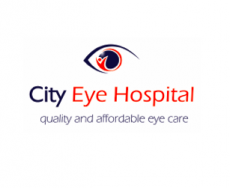City Eye Hospital
City Eye Hospital
Making quality eye care available and affordable in Kenya.
BCTA MEMBERSHIP STATUS
Alumni
SECTOR
Health
HEADQUARTERS
Kenya
REGION OF INITIATIVE
Africa
SDG CONTRIBUTION
RELATED NEWS
Kenya-based City Eye Hospital joined Business Call to Action (BCtA) in July 2017 by pledging to provide comprehensive eye examinations to 120,000 customers in poor communities by 2020 – 80,000 of them in community-based outreach ‘eye screening camps’. By the same year, the company aims to provide over 5,000 low-income clients with access to affordable, high-quality cataract care.
Kenya’s Government estimates that 250,000 people in the country are blind, with another 750,000 Kenyans suffering from low vision. Cataracts are the leading cause of blindness: although they can be treated, the country’s many low-income communities lack both physical access and the resources to afford cataract screening or care.
Dr. Amos Kibata established Upper Hill Eye and Laser Centre (UHEAL) in 2009 to provide quality eye care to patients in need. As operations picked up and patients benefited from the high quality of care, it was noted that the cost of care with UHEAL was too high for the majority of Kenyans, who had limited incomes.
To fill this coverage gap, UHEAL developed a cross-subsidy model in which a premium fee was charged to patients that visited the facility. These fees were used to finance a community-outreach programme through which low-income patients could be seen in their villages. But the customized van used to reach these remote villages was not sufficient to meet the huge demand in low-income communities.
This inspired Dr. Kibata to establish a new inclusive model – City Eye Hospital. With support from the Hilton Foundation and Aravind Eye Care system, the company began operations in June 2015, and has since performed more than 1,100 eye surgeries.
City Eye Hospital’s inclusive model is designed around the concept of low cost and high volumes, specifically targeting Kenyans with limited incomes and no access to medical insurance. High-volume service allows the company to charge a consultation fee below what government facilities charge for specialist services.
To ensure accessibility in remote areas, community-based ‘eye camps’ enable City Eye Hospital to screen large numbers of patients at no cost to the patients, and identify cases for treatment at its facility. The cost of small incision cataract surgery is USD 150 for patients who come on their own and USD 75 for patients screened through eye camps. A program to offer free cataract surgeries to outreach patients who cannot afford the USD 75 is currently in place. This approach has enabled the company to triple its number of outpatients within 18 months.
Having already screened 24,000 people and conducted 1,100 eye surgeries, the company has set new growth targets. City Eye Hospital aims to strengthen outreach and conduct 5,000 sight-saving surgeries within the next three years.



